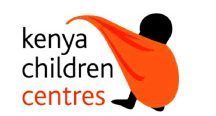Providing vital support during Covid
An Impending Catastrophe

Several agencies attempted to distribute food but this led to riots and violence, so the government banned public feeding programmes.
Negotiating a solution which was acceptable to the government and the police, met the new social distancing regulations, kept our social workers safe, and dealt with the internal travel constraints, was a challenge, to say the least.
Delivering Targeted Help

KCC was approached by local administrations in the areas where we had feeding programs. They requested that we help them feed the neediest families from their areas. We agreed to team up with them and the police and were able to feed over 2,000 extremely deprived children and their guardians. These were families who could not afford to have a decent meal. Families who would otherwise have to go to sleep hungry during the lockdown. The administrators helped KCC identify the neediest families to benefit from the food donations.
We used two solutions:
- A voucher system that entitled each family to collect an emergency box with a month’s supply of essential food, household, and hygiene items from a local grocery store.
- Direct distribution where there are no local shops. Our team purchased maize flour, rice, lentils, various types of beans, vegetables, oil, sugar, soap and masks, packed them in large sacks and distributed them to the families, many of whom walked several kilometres to get to the distribution point.
A measurable Impact

Each box, costing about £20, contained sufficient food, household, and hygiene items to support a family of five (typically 4 children and a guardian) for a month. It included maize flour, rice, lentils, various types of beans, vegetables, oil, sugar, soap, and masks.
We monitored each family to check on any changes to their circumstances and to assess the benefits of the programme. The benefits we found included:
- reduced child malnutrition
improved development - fewer health problems
- improved behaviour
- fewer children attracted to petty crime
- improved family environment with less risk of child abuse.
We continued to provide support until schools and day centres re-opened in 2021.
